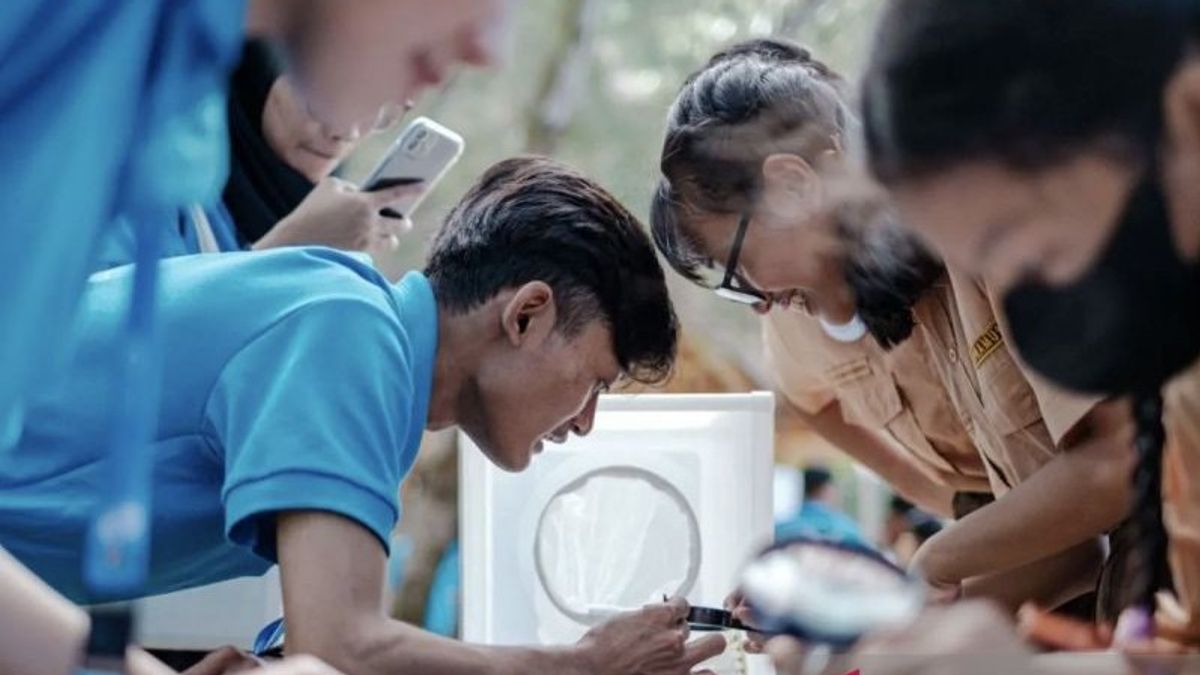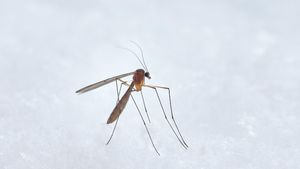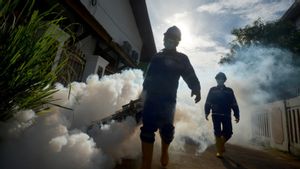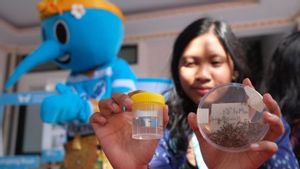JAKARTA - The Ministry of Health (Kemenkes) ensures that the use of Wolbachia bacteria in an effort to control the transmission of dengue hemorrhagic fever (DHF) has proven to be effective in suppressing cases of infection by up to 77 percent.
"This has been tested since 2011 in dozens of countries in the world that published 10 international publication research papers," said Health Transformation Technical Staff of the Ministry of Health Ngabila Salama in Jakarta, Antara, Monday, November 20.
He said Wolbachia was a good, safe, effective innovation, long-term handling steps, and could be accounted for in suppressing dengue cases in Indonesia.
The use of Wolbachia, he said, is even more effective than handling dengue through absorption, considering the cost is relatively more expensive and makes mosquitoes more resistant.
He said the public did not need to worry when in the early period the release of Wolbachia made the population of mosquitoes in the surrounding environment more.
The use of Wolbachia, he said, does not make humans the guinea pigs in this program, because the presence of Wolbachia bacteria in the Aedes aegypti mosquito will no longer transmit the virus when it bites humans.
He explained that Wolbachia bacteria also cannot live in the human body because they are natural bacteria in environmentally friendly insects, do not interfere with ecosystems, and other microorganisms' life cycles.
“ For several months Wolbachia can make mosquitoes carrying the DHF virus barren, so that although it is still biting but does not include the virus, and morbidity rates can drop,” he said.
In an effort to prevent dengue fever, the Ministry of Health has spread mosquito larvae with Wolbachia bacteria in five endemic cities of dengue in Indonesia since early 2023.
The spread of mosquito larvae with Wolbachia bacteria was carried out at 47,251 points in Semarang City, 20,513 points in Bandung City, 18,761 points in West Jakarta City, 9,751 points in Kupang City, and 4,917 points in Bontang City.
SEE ALSO:
The English, Chinese, Japanese, Arabic, and French versions are automatically generated by the AI. So there may still be inaccuracies in translating, please always see Indonesian as our main language. (system supported by DigitalSiber.id)
Most Popular Tags
#Prabowo Subianto #New Year #Mother's Day #nataru #NatalPopular
23 Desember 2024, 00:04
23 Desember 2024, 00:55















